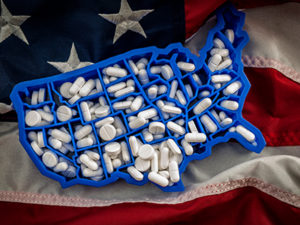By Paul Kalchbrenner, Deputy Director of SAFE Communities
Local communities are where solutions to address the SUD epidemic are being developed and implemented across the country. At SAFE Project, we work directly with local communities and see first hand how communities can come together, break down traditional silos, identify continuing needs, and develop programs and policies that achieve real results. That is why it’s critical for Congress carefully review federal grant programs through the lens of local communities as they consider changes to make them more effective.
Background on Federal Grants for the Opioid Epidemic
Members of Congress have been focused on addressing the SUD epidemic since December of 2016, when the 21st Century Cures Act was passed. Over the past three years, Congress has authorized – through multiple bills – over $6 billion in grants to states in the form of the State Targeted Response Grants (STR) and State Opioid Response (SOR) Grants. Of these amounts roughly $4 billion has been distributed to the states, with at least another $1.5 billion expected to go out in FY 2020. These funds are distributed to the states to address the opioid epidemic, who then are supposed to work with local jurisdictions and community groups to address key strategies, including prevention, treatment, harm reduction, and recovery support services.
While these bills also include many policy provisions, the funds under the STR and SOR grant programs are of greatest importance for local communities. These funds have been, and continue to be, desperately needed by local governments and community leaders working to address all aspects of the SUD epidemic. Local governments have incurred billions in costs addressing the epidemic — from increased costs related to first responders, criminal justice programs, expanding treatment programs, increased social services, and many others.

Federal Grant Programs Today
Recently, the House of Representatives began the process of reviewing these grant programs by sending letters to 16 states that requesting information on how each state is using federal funds authorized to combat the nation’s opioid epidemic. This is the first step of a Congressional review process that will continue into next year when Congress is likely to take up legislation to reauthorize the STR/SOR grant programs.
The continued magnitude of overdose deaths indicates that there is more work to be done, and continued federal, state, and local coordination and support is needed to combat this daunting crisis. . . The Committee is examining how these funds are being used by states to aid opioid use disorder treatment, recovery, and prevention efforts. Specifically, the Committee is interested in understanding what monies are reaching these states, how they are being deployed and prioritized, how such funds are being used to assist those suffering from substance use disorders, and what efforts are proving to be successful.Letter from members of the Committees with jurisdiction
What does this mean for Communities across America?
This is a positive development for local communities focused on addressing the addiction epidemic. Congress needs to examine how the states are spending these funds, how well they are (or are not) working with local government and community leaders, and above all how effective these funds are being used to prevent greater rates of addiction, save lives, and help people get access to treatment and support long-term recovery.
To make this oversight process successful in a way that will lead to greater improvements to these programs, it is critical for Congress to receive input from the local governments and community groups who are leaders in their States fighting on all fronts of this epidemic. At the same time, communities will need to make an effort to reach out to their Congressional delegations and share their experiences with these grants. In the weeks and months ahead, Congress and local communities need to engage each other so that Congress can provide needed improvements to make these programs more effective going forward.
Contact the congressman or congresswoman serving your community.
